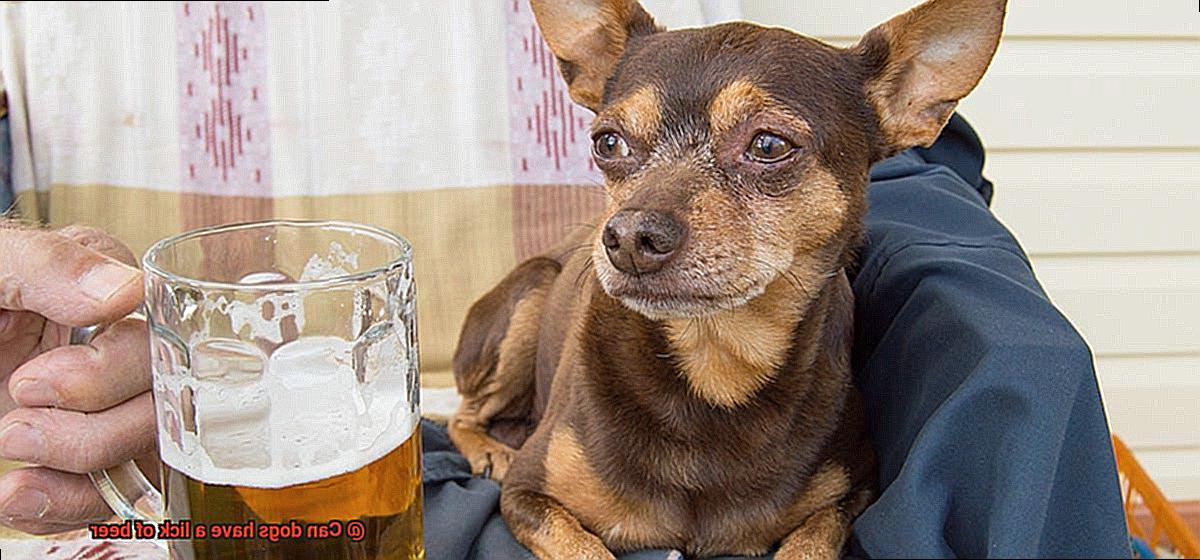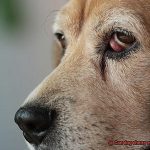Can dogs have a lick of beer?
Imagine this scene: a sun-soaked day, your pals clinking frosty brews, and your furry buddy giving you those irresistible puppy eyes, begging for a sip. As a dog lover, you’ve probably pondered the question, “Can dogs have a lick of beer?” While it’s tempting to let them join in on the fun, we need to consider how it might affect their health and happiness.
In this blog post, we’re diving deep into the world of dogs and beer. We’ll uncover the potential perks and pitfalls that come with letting our canine companions have a taste. Plus, we’ll shed light on any regulations or laws that could sway our decision. Armed with all the facts, you’ll be able to make an educated choice for your four-legged sidekick.
When it comes to this topic, balance is key. Some folks argue that sharing a teeny drop of beer won’t hurt Fido, while others are dead set against it. As responsible pet owners, let’s explore both sides of the coin so we can make a wise call together.
What is Beer and How Does it Affect Dogs?
Contents
- 1 What is Beer and How Does it Affect Dogs?
- 2 Alcohol Poisoning Symptoms in Dogs
- 3 The Dangers of Hops in Beer for Dogs
- 4 Non-Alcoholic Beers and Dog-Friendly Beers: Are They Safe?
- 5 What to Do if Your Dog Drinks Beer
- 6 Veterinary Care for Alcohol Poisoning in Dogs
- 7 Tips for Preventing Beer Consumption by Dogs
- 8 Alternatives to Giving Dogs a Lick of Beer
- 9 Conclusion
Picture this: you’re enjoying a cold beer on a sunny day, and your furry friend is giving you the most adorable puppy eyes. It’s tempting to give them just a little taste, right? After all, what harm could it do? Well, as an expert on French Bulldogs, I’m here to tell you that dogs should never have a lick of beer or any other alcoholic beverage. Let’s dive into the reasons why.
First and foremost, it’s important to understand what beer is. Beer is an alcoholic beverage made from cereal grains like barley, wheat, or corn. It contains ingredients like water, hops, yeast, and sometimes additional flavorings or additives. These ingredients may sound harmless to us humans, but they can have serious adverse effects on our four-legged friends.
Alcohol is toxic to dogs, regardless of the amount consumed. When dogs ingest alcohol, it quickly enters their bloodstream and affects their central nervous system.
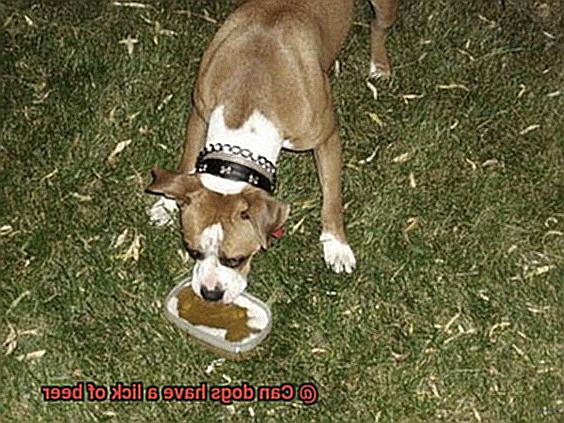
This can lead to confusion, disorientation, unsteady gait, lethargy, vomiting, diarrhea, difficulty breathing, and even seizures or coma in severe cases. Even low-alcohol or non-alcoholic beers can still be harmful due to other ingredients or additives present.
But it’s not just the alcohol content that poses a risk. The carbonation in beer can cause bloating and discomfort in dogs, especially in breeds prone to gastric torsion or bloat.
Additionally, the hops used in brewing beer are toxic to dogs and can have grave consequences. Symptoms of hop poisoning include increased body temperature, rapid heart rate, panting, restlessness, and even death if not treated promptly.
So how can we ensure our beloved French Bulldogs stay safe? It’s simple – keep beer and all other alcoholic beverages out of their reach. Make sure to never leave open containers unattended or allow them to lick up spilled beer. Prevention is key in keeping them away from potentially harmful substances.
If you suspect that your dog has ingested beer or is showing signs of alcohol poisoning, it’s crucial to seek immediate veterinary attention. The sooner they receive treatment, the better their chances of a full recovery. Treatment may include inducing vomiting, administering activated charcoal to prevent absorption of the alcohol, and providing supportive care to manage symptoms.
Instead of giving your furry friend a lick of beer, opt for fresh water and appropriate treats or toys designed specifically for dogs. There are countless alternatives available that are safe and enjoyable for dogs without the risks associated with alcohol consumption.
Alcohol Poisoning Symptoms in Dogs
We all want what’s best for our furry friends, and that means keeping them safe from any potential dangers. One danger you may not be aware of is alcohol poisoning. Yes, you heard it right – even a small amount of alcohol can have serious consequences for our beloved Frenchies. In this article, we’ll dive into the symptoms of alcohol poisoning and how to keep your furry friend safe.
Symptoms of Alcohol Poisoning in French Bulldogs:
- Vomiting: Just like in humans, alcohol irritates the stomach lining in dogs, leading to nausea and vomiting. If your Frenchie has consumed alcohol, they may start retching and eventually vomit. Keep an eye out for any unusual behavior and consider this symptom alongside others.
- Disorientation: Alcohol affects the central nervous system, causing changes in coordination and balance. Your Frenchie may stumble or have difficulty walking straight. They might seem confused or dazed, not responding to your commands. If you notice any signs of disorientation, take it seriously and seek immediate veterinary care.
- Lethargy and Depression: Alcohol depresses the central nervous system, resulting in sedation and decreased activity levels. Your Frenchie may appear weak or lack energy. They might seem withdrawn, not showing interest in their usual activities or interacting with you. If you notice such behavior changes, it’s time to consult your vet.
- Increased Heart Rate and Difficulty Breathing: These symptoms can indicate a more severe case of alcohol poisoning and require urgent veterinary attention. Keep an eye out for rapid breathing or an unusually fast heart rate in your Frenchie.
- Seizures and Collapse: In severe cases, alcohol poisoning can lead to seizures or even collapse. These are clear signs of a medical emergency, and immediate veterinary intervention is crucial to save your Frenchie’s life.
Prevention is Key:
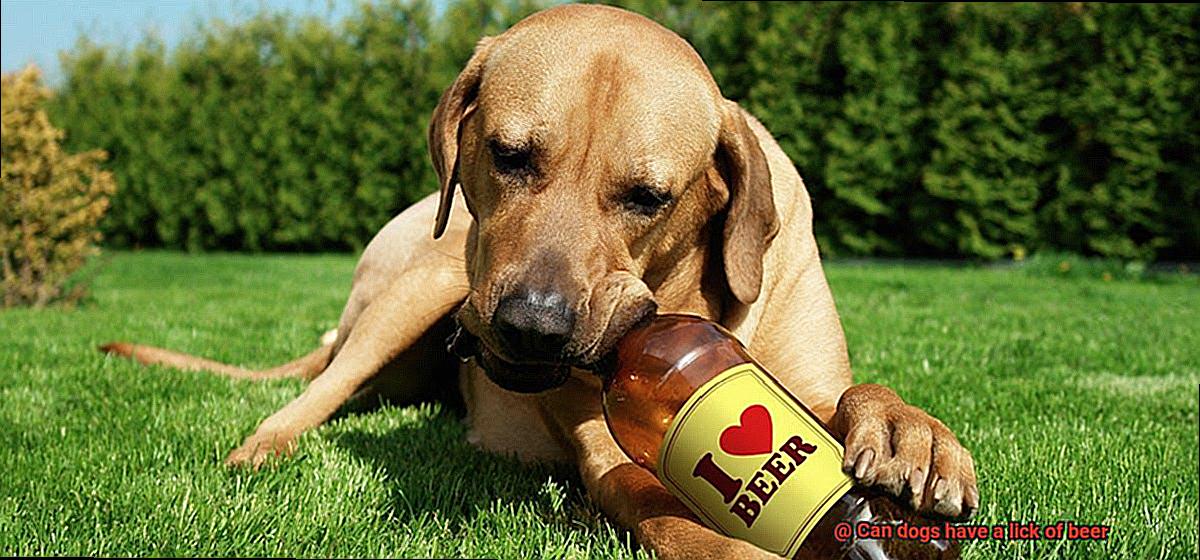
Remember, even a small amount of alcohol can be toxic to French Bulldogs. It’s essential to keep all alcoholic beverages out of their reach and ensure that any spills are promptly cleaned up. Let’s keep our furry friends safe by being proactive and responsible.
The Dangers of Hops in Beer for Dogs
Picture this: you’re sitting back, enjoying a cold beer on a hot summer day, and your French Bulldog is lounging nearby, looking up at you with those adorable puppy eyes. It’s tempting to share a sip with your furry friend, but did you know that hops, a common ingredient in beer, can be extremely dangerous for dogs?
Hops: Not Just for Beer
Hops are the flowers of the hop plant and are commonly used in brewing beer. While they may be harmless to humans, they can be toxic to our canine companions. Hops contain a compound called xanthohumol, which can cause a range of serious health issues when ingested by dogs. These include increased heart rate, elevated body temperature, panting, restlessness, vomiting, diarrhea, and even death.
Size Matters
The severity of these symptoms depends on the amount of hops ingested and the size of your French Bulldog. Even a small amount of hops can be harmful to your pet. And here’s the scary part: hops can have a cumulative effect in their system. This means that repeated exposure to even small amounts can lead to toxic levels.
Brewed or Fresh: Equally Dangerous
It’s not just fresh hops that pose a risk; hops used in brewing beer can also be toxic to dogs. So if you’re a homebrewer or have spilled some beer containing hops, make sure your French Bulldog doesn’t have access to it. Dogs can come into contact with hops by chewing on hop plants or flowers or by licking spilled beer.
Prevention is Key
As responsible dog owners, it’s our duty to prevent our furry friends from accessing any areas where hops or beer are present. This may mean keeping them out of the garage or homebrewing area and ensuring that any spills are promptly cleaned up.
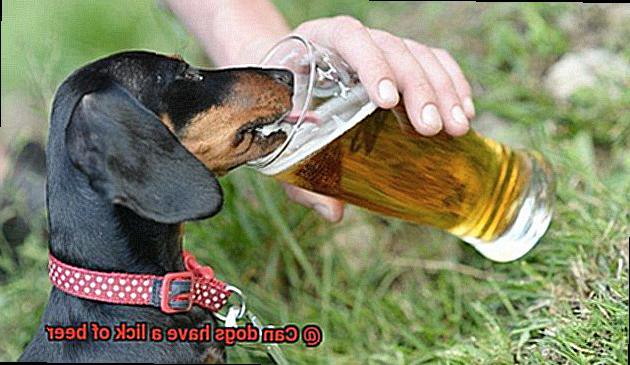
Seek Veterinary Attention Immediately
If you suspect that your French Bulldog has ingested hops, it’s crucial to seek immediate veterinary attention. The effects can be life-threatening, and prompt treatment can make all the difference.
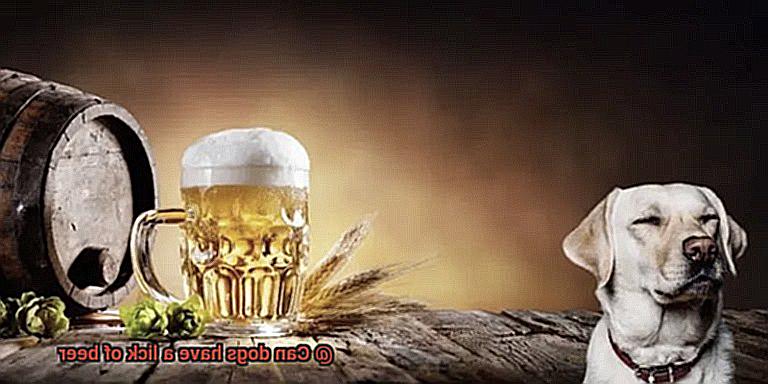
Non-Alcoholic Beers and Dog-Friendly Beers: Are They Safe?
It’s important to understand the potential risks associated with these beverages. In this article, we’ll explore the potential dangers and provide expert insights to help you make an informed decision.
Carbonation and Bloating:
Non-alcoholic beers often contain carbonation, which can cause bloating and discomfort in dogs, especially those with sensitive stomachs. To keep your Frenchie happy and healthy, it’s best to avoid giving them any carbonated drinks, including non-alcoholic beers.
Artificial Sweeteners:
Some non-alcoholic beers may contain artificial sweeteners like xylitol, which can be toxic to dogs. Xylitol can lead to a dangerous drop in blood sugar levels and even liver failure. Always check the ingredients list before giving any non-alcoholic beer to your Frenchie.
Dog-Friendly Beers:
Dog-friendly beers are specifically formulated for dogs and usually do not contain alcohol or hops, which are toxic to our furry friends. These beers are made with safe ingredients like beef or chicken broth and are marketed as a fun and safe way to treat your Frenchie.
Moderation is Key:
While a small lick or taste of non-alcoholic beer or dog-friendly beer may not cause immediate harm to your Frenchie, regular consumption can lead to weight gain and other health issues. These beverages should be seen as occasional treats rather than a regular part of your Frenchie’s diet.
Consult Your Veterinarian:
If you’re unsure about whether it’s safe for your Frenchie to have a lick of beer, it’s always best to consult with your veterinarian. They can provide personalized advice based on your Frenchie’s specific health needs and dietary restrictions.
What to Do if Your Dog Drinks Beer
You’re enjoying a refreshing beer on a hot summer day when suddenly, your French Bulldog sneaks a quick lick from your glass. While it may seem harmless at first, it’s crucial to take immediate action if your dog drinks beer. In this article, we’ll outline the steps you should take to ensure your furry friend’s safety and well-being.
Stay Calm and Assess the Situation:
The first thing to do is to stay calm. Panicking will only make the situation more difficult to handle. Assess how much beer your dog consumed. If it was just a small sip or lick, the risk may be minimal, but it’s still important to closely monitor your dog for any signs of distress.
Seek Veterinary Assistance:
If your dog has consumed a significant amount of beer or is showing signs of distress, it’s crucial to seek immediate veterinary attention. Even small amounts of alcohol can be dangerous for dogs, especially if they are small or have pre-existing health conditions. Contact your veterinarian or a pet poison helpline for guidance on what to do next.
Keep Your Dog Calm and Comfortable:
While waiting for professional help or during transportation to the vet, try to keep your dog calm and comfortable. Offer them water to drink in order to dilute the alcohol in their system and prevent dehydration. Monitor their behavior closely for any signs of distress, such as stumbling, vomiting, or difficulty breathing.
Follow Veterinary Instructions:
Do not induce vomiting unless specifically instructed by a veterinarian. It’s important to follow their guidance as they will be able to assess the situation and provide appropriate treatment. In some cases, inducing vomiting may not be recommended, such as if your dog has already started showing symptoms of alcohol poisoning.
Provide Detailed Information to Your Veterinarian:
Inform your veterinarian about any other symptoms or changes in your dog’s behavior that you notice after they have consumed beer. These could include lethargy, increased heart rate, seizures, or loss of coordination. The more information you can provide, the better equipped your vet will be to assess the situation and provide appropriate treatment.
Veterinary Care for Alcohol Poisoning in Dogs
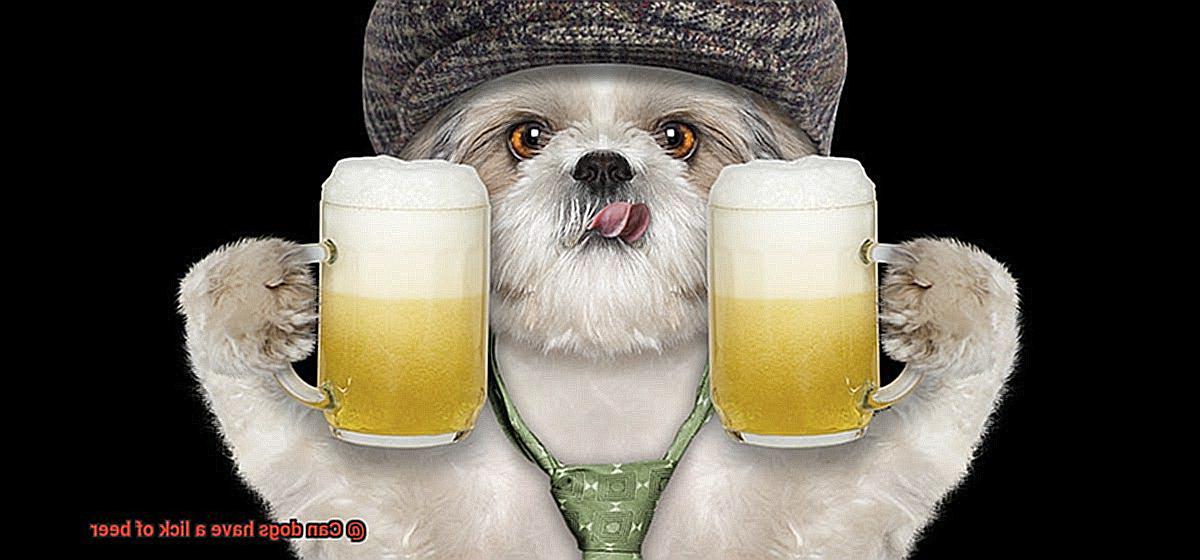
Unfortunately, their curious nature can sometimes lead them into dangerous situations, such as ingesting alcohol. In this blog post, we will explore the potential consequences of alcohol poisoning in dogs and the essential steps that should be taken if your French Bulldog has ingested alcohol. So, grab a cup of tea (no alcohol, of course.) and let’s dive in.
Understanding the Dangers:
Dogs are much more sensitive to the effects of alcohol than humans. Even a small amount of alcohol can have serious consequences for our four-legged pals. It’s essential to recognize the symptoms of alcohol poisoning in dogs, including vomiting, diarrhea, difficulty breathing, disorientation, lethargy, and even seizures. If you notice any of these signs or suspect that your French Bulldog has ingested alcohol, don’t delay – seek veterinary care immediately.
Seeking Veterinary Care:
When it comes to alcohol poisoning in our beloved French Bulldogs, time is of the essence. Upon arrival at the veterinarian’s office, they will assess your dog’s condition and may perform necessary tests to determine the severity of the situation. The veterinarian may induce vomiting if the dog is stable and it’s deemed safe to do so. However, always remember that inducing vomiting should only be done under professional guidance.
Treatment Options:
In more severe cases of alcohol poisoning, additional measures may be required. The veterinarian may administer activated charcoal or perform gastric lavage to remove the alcohol from your French Bulldog’s stomach. Supportive care, such as intravenous fluids, may also be necessary to aid in recovery and prevent dehydration.
The Importance of Honesty:
As responsible dog owners, it is crucial to provide accurate information about any potential alcohol ingestion to your veterinarian. This information will help them determine the best course of treatment for your French Bulldog. Remember, your veterinarian is there to provide the best care possible, so be honest and transparent about what happened.
Prevention is Key:
While accidents can happen, prevention is always better than cure. Keep all alcoholic beverages out of your French Bulldog’s reach, store them securely, and be cautious when attending social gatherings where alcohol may be present. Dogs are naturally curious creatures and may inadvertently consume unattended drinks.
Tips for Preventing Beer Consumption by Dogs
One such danger is beer consumption, as even a small amount can have serious health consequences for our furry friends. In this article, we will explore some valuable tips to prevent beer consumption by French bulldogs and ensure their well-being.
Store Beer Securely:
To prevent your French bulldog from accessing beer, store all alcoholic beverages in a secure place such as a refrigerator or locked cabinet. This will ensure that your curious pup cannot reach them.
Educate Family Members and Guests:
Many people may not be aware of the dangers of giving beer to dogs. It is essential to educate your family members and guests about the harmful effects of alcohol on French bulldogs. Clearly communicate that no amount of beer should be given to your furry friend.
Supervise During Gatherings:
When hosting parties or gatherings where alcohol is present, closely supervise your French bulldog to prevent access to open containers of beer. Consider using baby gates or keeping your pup in a separate room during these events.
Provide Distractions:
To redirect your French bulldog’s attention away from your beer, provide them with alternative activities or treats. Engage them in interactive play or offer them their favorite toys and treats to keep them occupied.
Training Commands:
Training plays a significant role in preventing beer consumption by French bulldogs. Teach them basic commands such as “leave it” or “drop it.” With consistent training and reinforcement, your furry friend will learn to avoid consuming anything potentially harmful.
Be Vigilant Outdoors:
Whether it’s a backyard barbecue or a picnic at the park, be mindful of spilled beer or unattended bottles/cans that your French bulldog may come across. Clean up spills promptly, and dispose of empty containers in secure trash bins.
Conclusion:
Preventing beer consumption by French bulldogs is essential for their well-being. By following these tips and taking necessary precautions, you can ensure that your furry friend stays safe and healthy. Remember, the best treat for your French bulldog is your love and care, not beer. Cheers to responsible pet ownership.
Alternatives to Giving Dogs a Lick of Beer
We all know how adorable and lovable our furry friends are. But when it comes to their health and well-being, it’s important to steer clear of potentially harmful substances like beer. Alcohol can be toxic to dogs and cause serious health issues. So, let’s explore some paw-some alternatives that will keep your French bulldog happy and safe.
Non-Alcoholic Dog-Friendly Beverages:
Just like us humans, dogs can enjoy a refreshing drink without the alcohol. There are many non-alcoholic dog-friendly beers or drinks available on the market, specially formulated for our furry friends. These beverages are made from safe ingredients and often come in delicious flavors like chicken or beef.
Flavored Water or Broth:
Why not give your French bulldog’s water a little twist? Add a small amount of low-sodium chicken or beef broth to their water bowl. This simple trick will give their hydration routine a tasty upgrade, without any harmful effects.
Frozen Treats for Hot Days:
When the sun is scorching, frozen treats are a hit. Prepare frozen fruits like bananas or berries for your pup to enjoy. You can even find frozen dog-friendly treats at your local pet store. These icy delights not only provide a refreshing snack but also help keep your French bulldog hydrated during those hot summer days.
Dog-Safe Herbal Teas:
Certain herbal teas can be soothing for dogs and provide a similar experience to drinking beer without any risks. Chamomile or peppermint tea can be brewed and cooled down for your French bulldog to sip on. It’s a comforting alternative that will make them feel relaxed and content.
Interactive Playtime:
Who needs beer when you have interactive playtime with your French bulldog? Engaging in games like fetch or tug-of-war not only provides mental stimulation but also gives your pup a great workout. It’s a fantastic alternative to keep them entertained and fulfilled.
Conclusion
In conclusion, it is best to avoid giving your furry friend even a lick of beer.
Dogs have a different metabolism than humans, and alcohol can have severe negative effects on their health. From upset stomachs to liver damage, the risks simply outweigh any momentary pleasure they may experience from that little taste.
Remember, dogs rely on us to keep them safe and healthy, so it’s important to make responsible choices when it comes to what we allow them to consume.
